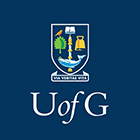- Berita & artikel
- Find usIDP AustraliaIDP BahrainIDP BangladeshIDP CambodiaIDP CanadaIDP ChinaIDP EgyptIDP GhanaIDP Hong KongIDP IndiaIDP IndonesiaIDP IranIDP JordanIDP KenyaIDP KoreaIDP KuwaitIDP LebanonIDP MalaysiaIDP MauritiusIDP Middle EastIDP NepalIDP New ZealandIDP NigeriaIDP OmanIDP PakistanIDP PhilippinesIDP Saudi ArabiaIDP SingaporeIDP Sri LankaIDP Taiwan, ChinaIDP ThailandIDP TurkeyIDP UAEIDP VietnamIDP Corporate
- Social
- Bahasa Indonesia
- Where we operate
- Courses
- Scholarships
- IELTS
- About IDP
- Student Essentials
- Student Essentials
- Transfer uang
- Asuransi kesehatan
- Layanan perbankan
- Akomodasi
- Berita & artikel
- Find us
- Find us
- Find nearest IDP offices
- IDP Australia
- IDP Bahrain
- IDP Bangladesh
- IDP Cambodia
- IDP Canada
- IDP China
- IDP Egypt
- IDP Ghana
- IDP Hong Kong
- IDP India
- IDP Indonesia
- IDP Iran
- IDP Jordan
- IDP Kenya
- IDP Korea
- IDP Kuwait
- IDP Lebanon
- IDP Malaysia
- IDP Mauritius
- IDP Middle East
- IDP Nepal
- IDP New Zealand
- IDP Nigeria
- IDP Oman
- IDP Pakistan
- IDP Philippines
- IDP Saudi Arabia
- IDP Singapore
- IDP Sri Lanka
- IDP Taiwan, China
- IDP Thailand
- IDP Turkey
- IDP UAE
- IDP Vietnam
- IDP Corporate
- Social
- Ubah Bahasa
- IDP Education /
- Kampus dan Universitas /
- United Kingdom /
- University of Glasgow /
- MLitt Art History - Technic...

MLitt Art History - Technical Art History, Making and Meaning
At UNIVERSITY OF GLASGOW
Lokasi
United Kingdom
Kualifikasi
Masters Degree (Taught)
Biaya
GBP24000
(2025)
Durasi
1 Year(s)
Intake selanjutnya
22 September 2025
Skor masuk
7.0
IELTSCOURSE_INFO
You will participate in reconstruction workshops of painting techniques, as well as workshops on the reconstructions of pigment recipes and scientific examination techniques. You can take a study trip to Amsterdam, London, Madrid or Munich, visiting major museums and their conservation studios and research labs, as well as research institutions working in the field of technical art history.
- Beasiswa Lihat semua jurusan
- Magang
Persyaratan masuk untuk University of Glasgow
You should also submit:
a writing sample of 2,000-3,000 words
a CV
a personal statement
IELTS - 7.0 with no subtests under 6.5
TOEFL ibt - 94, with Reading 19, Listening 20, Speaking 20, Writing 24
Batas Waktu Pendaftaran
Batas waktu pendaftaran tidak tersedia Hubungi konselor IDP untuk informasi lebih lengkap
Further information
If you aren't eligible for the above entry requirements, you might ant to explore pathway options at University of Glasgow. If you want to find out more, speak to our counsellors.
Peringkat Dunia THE
87th / 1250
Peringkat Dunia THEApa yang siswa kami pikirkan
Kami belum menerima ulasan apa pun untuk institusi ini.
Direkomendasikan untuk Anda
- Pascasarjana
- United Kingdom
- Tipe pendanaan: Fee waiver/discount
- Pascasarjana
- United Kingdom
- Tipe pendanaan: Fee waiver/discount
- Pascasarjana
- United Kingdom
- DEADLINE: 28 Feb 2025
- Tipe pendanaan: Fee waiver/discount
- Pascasarjana
- United Kingdom
- Tipe pendanaan: Other Discount
- Pascasarjana
- United Kingdom
- Tipe pendanaan: Fee waiver/discount
- Pascasarjana
- United Kingdom
- Tipe pendanaan: Fee waiver/discount
- Pascasarjana
- United Kingdom
- Tipe pendanaan: Fee waiver/discount
- Pascasarjana
- United Kingdom
- Tipe pendanaan: Fee waiver/discount
Your action plan
Langkah 1
Shortlist your courses
Choose the best three courses you’re most likely to pursue.
Langkah 2
Check your eligibility
Get an instant in-principle offer for courses with the IDP FastLane tag.
Langkah 3
Apply through IDP Live
Fill out the form once and use it to apply to multiple courses.
Bagaimana cara kerja IDP FastLane?
Dengan 'Offer in Principle' dari FastLane, Anda akan mengetahui apakah Anda dapat diterima dalam hitungan menit!
Pilih institusi dan mata kuliah
Buat profil akademik Anda
Kirimkan permohonan Anda untuk 'Offer in Principle'
Institusi pilihan Anda akan mengirimkan keputusan dalam hitungan menit!
Bersiaplah untuk mendaftar dengan konselor ahli




